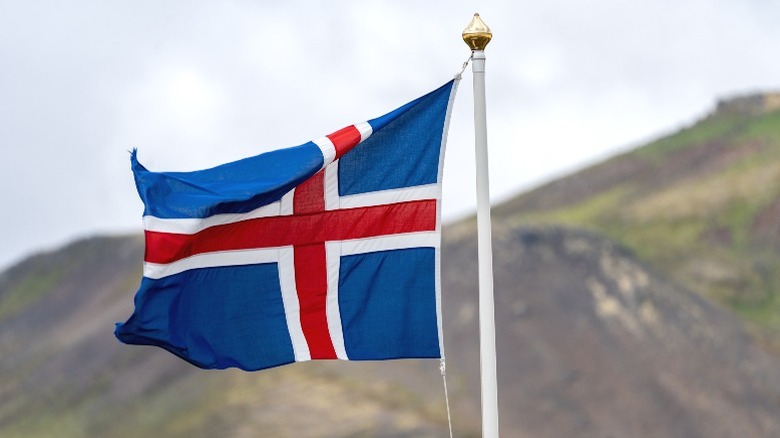Icelandic Vs. British Fish And Chips: Is There A Difference?
Even someone who has never set foot on the British Isles probably has a good idea of what fish and chips are. A mild-flavored whitefish, usually cod or haddock, is battered and fried before being served with big, chunky yellow chips (or "fries", as we Yankees call them). They might be served with mushy peas, or they might be doused in malt vinegar or tartar sauce. In any case, you know what to expect — unless, of course, you go to Iceland, where they do fish and chips a little differently, using a lighter, crispier batter and a unique dipping sauce.
Then again, they do most things a little differently in Iceland. It is a small and remote country, isolated even from its Nordic counterparts, and quite insular — and that's not even getting into the fact that it sits atop a volcanic hotspot. That's a recipe for a culture unlike anywhere else on Earth — just look at Bjork. Iceland's unique fish and chips are another manifestation of its distinctive culture (certainly a more palatable manifestation than hákarl, the fermented shark dish that even Anthony Bourdain couldn't handle).
Icelandic fish and chips are lighter than their British counterpart
With Icelandic fish and chips, the fish is typically battered in little more than spelt flour, as opposed to the wheat flour, beer, and vinegar batter of British fish and chips. In combination with the Icelandic fry oil of choice, rapeseed oil (also known as canola oil, Bobby Flay's preferred cooking oil), the result is light and flaky, closer to tempura than traditional fish and chips. On top of that, the chips aren't fried at all in Iceland — instead, they're simply roasted and sprinkled with salt.
The preferred accoutrement to Icelandic fish and chips is something called skyronnes, which isn't too far removed from tartar sauce. However, instead of mayonnaise, the base is skyr, a thick, creamy yogurt (we know, yet another international yogurt), into which they mix herbs and spices like chopped dill and chives. There are some slight differences between the Icelandic and British dishes, and Icelandic fish and chips are, if not healthy, then at least healthier than the heartier British variety of fish and chips. But on the whole, it's familiar yet enticingly different.

